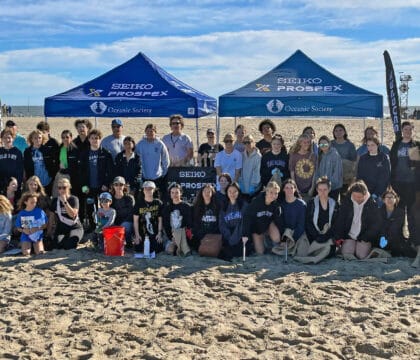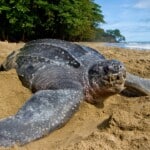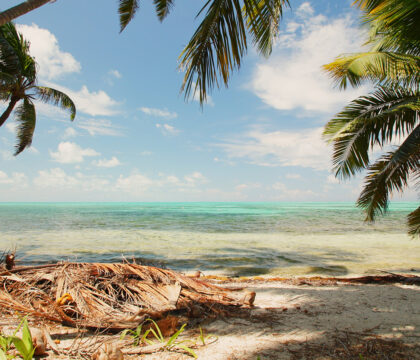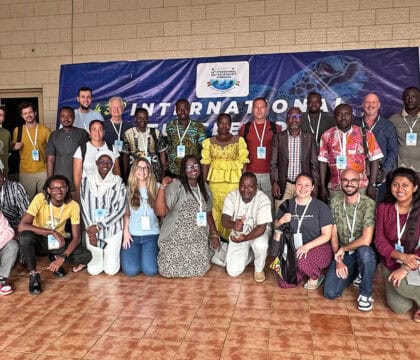February 4, 2017 • Trip Reports
“It’s really breaking my heart because my daughter just started diving, I worry that in couple years she won’t see the things I’ve seen.”
– Dalton Ambat, Oceanic Society naturalist and snorkel guide for our Raja Ampat & Komodo expeditions since 2011
Last November, while on our “Dragons to Debris” expedition from Bali to Komodo, Indonesia, our team of NGO representatives, artists, scientists, photographers, tourists, and students experienced one of the most wonderful days we have collectively had in nature. It began with a full morning spent alongside the Komodo dragons of Rinca Island. These huge, carnivorous reptiles can weigh nearly 200 lbs and have claimed ownership of Komodo and Rinca Islands for a few million years. That afternoon, while returning to the sea for a snorkel outing, we were treated to a 3-hour encounter with more than 40 manta rays. Much of that time was spent gliding alongside multiple squadrons of 5 to 6 swirling mantas, until the sun was starting to set and we had to say goodbye.
It is the promise of magical days like this that keeps us returning to the Coral Triangle year after year, one of the world’s best snorkeling destinations. However, mixed in with all that beauty, a paradox is present: the most beautiful and diverse tropical coral reef ecosystems in the world are fast becoming a repository for our plastic pollution. As conservation photographer and Oceanic Society naturalist Pete Oxford simply states, “In the Western world we say, ‘just throw it away.’ There is no away. It goes somewhere, and this is where it’s going.”
A new video produced by Plastic Pollution Coalition during the expedition captures this paradox in astonishing footage and poignant interviews with trip participants:
“We are in a transformational moment, we have the opportunity to make changes, even little by little, day-by-day, that are going to spread like wildfire. They are going to change the face of humanity, and we are just in time to make this change happen.”
– Pam Longobardi, Oceanic Society “Artist in Nature” and Drifter’s Project Founder.
At Oceanic Society we have been helping build a global community of ocean activists and advocates since our founding in 1969. We are pioneers in the use of ecotourism to build community and restore the participants’ individual connection to the natural world. Our international expeditions also promote “blue economies” across borders, reinforcing the non-consumptive value of wildlife and the economic benefits that protected ecosystems can deliver, over the long-term, to the communities that protect them.
In that spirit, our Bali to Komodo expedition was a collaborative effort organized by Oceanic Society and Plastic Pollution Coalition, the Drifter’s Project, and Mission Blue. We invited partners from across the globe and had members from the Coral Triangle Center, Hong Kong Clean-up, EcoZine, Adventure Scientists, Watamu Marine Association, Refined Travelers, Sea Safari, and Seatime, Inc.
If you’re inspired by what you see, here are some simple actions you can take to starting reducing your plastic footprint today.
“…the answer will come from millions of people in thousands of places around the world learning to love and then starting to defend those local places — both their nature and their culture.”
– Wendell Barry




